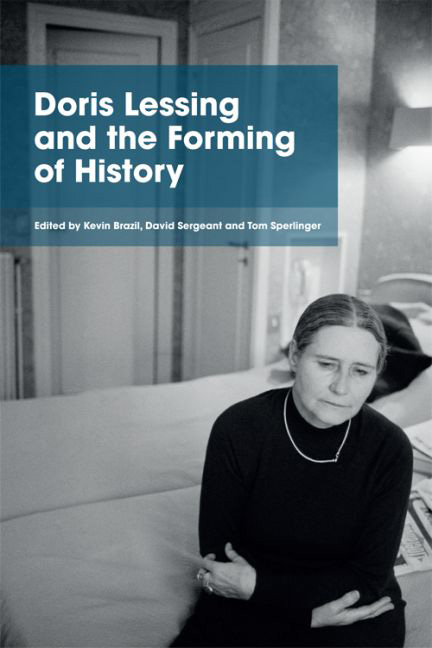Book contents
- Frontmatter
- Contents
- Acknowledgements
- Timeline
- Introduction
- 1 Early Lessing, Commitment, the World
- 2 ‘I'm an adolescent. And that's how I'm going to stay’: Lessing and Youth Culture 1956–1962
- 3 Sequence, Series and Character in Children of Violence
- 4 The Politics of Form: The Golden Notebook and Women's Radical Literary Tradition
- 5 Readers of Fiction and Readers in Fiction: Readership and The Golden Notebook
- 6 From The Grass is Singing to The Golden Notebook: Film, Literature and Psychoanalysis
- 7 ‘funny thing laughter, what's it for?’: Humour and Form in Lessing's Fiction,A
- 8 Lessing and the Scale of Environmental Crisis
- 9 Lessing and Time Travel
- 10 Lessing's Interruptions
- 11 Lessing's Witness Literature
- 12 A Catastrophic Universe: Lessing, Posthumanism and Deep History
- Select Bibliography
- Notes on Contributors
- Index
11 - Lessing's Witness Literature
Published online by Cambridge University Press: 26 May 2017
- Frontmatter
- Contents
- Acknowledgements
- Timeline
- Introduction
- 1 Early Lessing, Commitment, the World
- 2 ‘I'm an adolescent. And that's how I'm going to stay’: Lessing and Youth Culture 1956–1962
- 3 Sequence, Series and Character in Children of Violence
- 4 The Politics of Form: The Golden Notebook and Women's Radical Literary Tradition
- 5 Readers of Fiction and Readers in Fiction: Readership and The Golden Notebook
- 6 From The Grass is Singing to The Golden Notebook: Film, Literature and Psychoanalysis
- 7 ‘funny thing laughter, what's it for?’: Humour and Form in Lessing's Fiction,A
- 8 Lessing and the Scale of Environmental Crisis
- 9 Lessing and Time Travel
- 10 Lessing's Interruptions
- 11 Lessing's Witness Literature
- 12 A Catastrophic Universe: Lessing, Posthumanism and Deep History
- Select Bibliography
- Notes on Contributors
- Index
Summary
As this collection testifies, Doris Lessing has always been drawn, from her earliest writings, to commitment literature, witness literature, whether in her fiction or her non-fiction. This article will centre on one of her most challenging and prescient works of reportage in the 1980s, a text that throws light on much that has happened in our contemporary world of conflict and refugee crises. The Wind Blows Away Our Words(1987) is based on her visit to Afghan fighters and refugees in Pakistan during the war against the Soviet Union. Lessing's reportage will be situated within the growing tradition of women writing witness literature in response to the traumatic events of the twentieth century, concentrating on an older contemporary, Storm Jameson.
The essential task for those, like Jameson and Lessing, with a legacy of such crises is to break free from the hauntings that they provoke, from becoming trapped in the past, to find, as the psychologist Robert Jay Lifton puts it:
new inner forms that include the traumatic event, which in turn requires that one finds meaning or significance in it so that the rest of one's life need not be devoid of meaning or significance. Formulation means establishing the lifeline on a new basis. (176)
Lessing's parents, trapped in the past by their experiences of the First World War, never achieved this. But many of Lessing's older women contemporaries, writers like Storm Jameson, set out, in the wake of the First World War, to establish just that: a lifeline ‘on a new basis’. However, there was also the pressing need to remember, to reassess, and to ponder on what was in danger of being forgotten or suppressed. For it is all too clear that what appals at one date can be forgotten, its lessons unlearnt. Wolf Gruner recalls, for example, how the massacre of the Armenians by the Ottomans has been ‘overshadowed by the Nazi extermination of the European Jews’ (197). After 1945, what had been seen in 1930 as ‘the bloodiest and most atrocious mystery in history’ was lost to view: ‘The “industrial enterprise” of Auschwitz would now replace the Kemach Gorge as the symbol of an “unprecedented,” horrific, and systematic slaughter of a people by another people’ (197–8).
- Type
- Chapter
- Information
- Doris Lessing and the Forming of History , pp. 152 - 163Publisher: Edinburgh University PressPrint publication year: 2016



